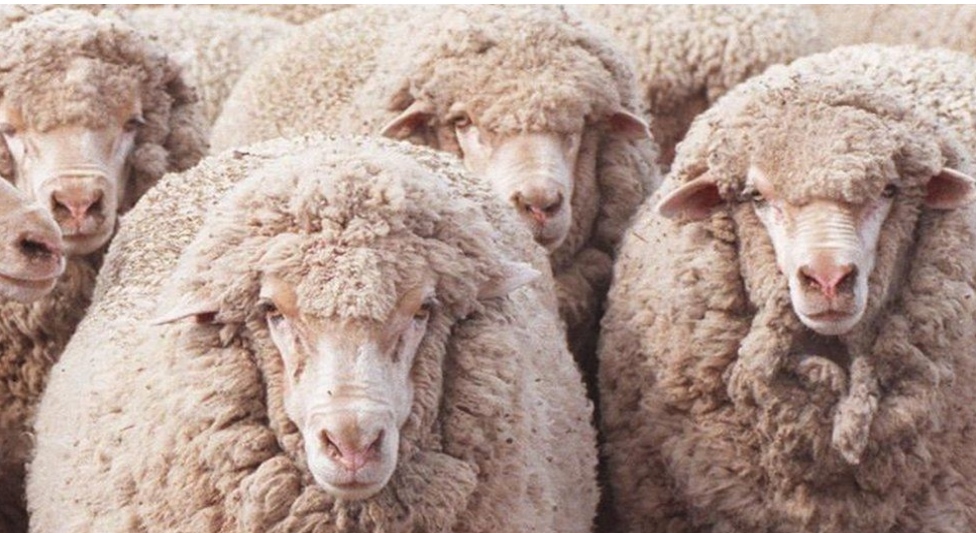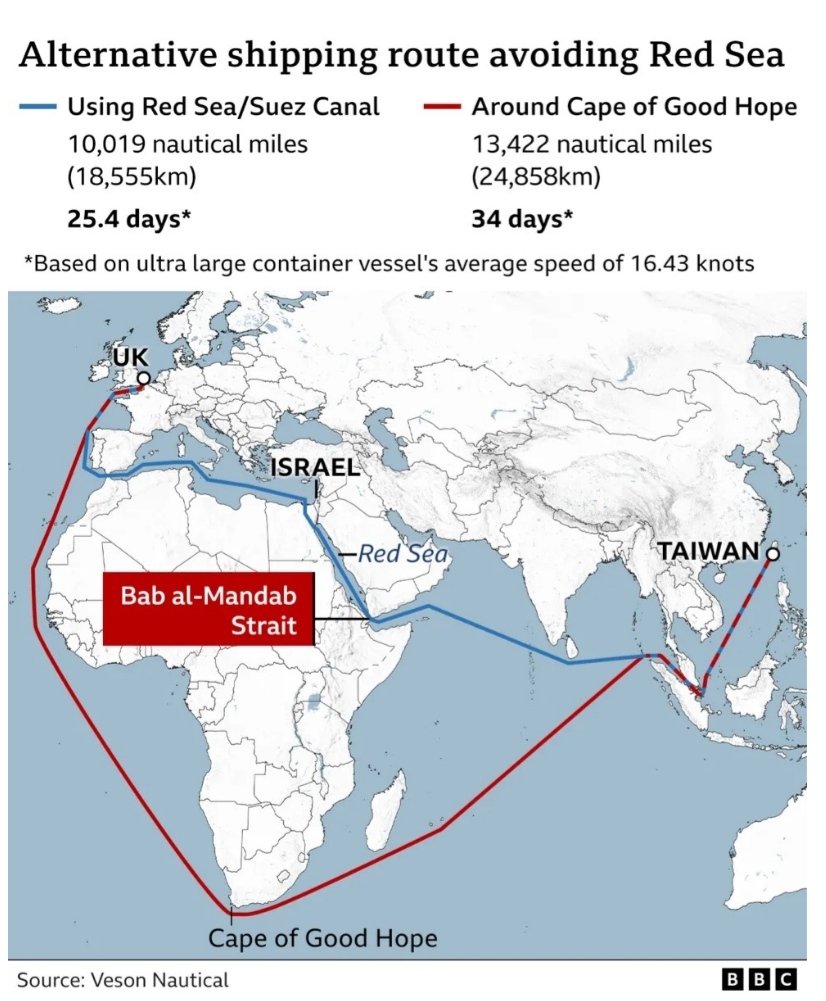Red Sea attacks : Australia Faces the Heat
By James FitzGerald

Australia exports hundreds of thousands of sheep and cattle to the Middle East every year
A ship carrying 16,000 sheep and cattle that had been stranded off the coast of Australia in extreme heat has returned to a Perth port.
Last month, the MV Bahijah abandoned its journey through the Red Sea – where Houthi fighters in Yemen have been attacking ships – leaving the animals stuck on board for weeks.
The vessel had remained at sea pending an Australian decision on whether the livestock could be offloaded.
Officials cited biosecurity risks.
It is still unclear whether the animals will be permitted to disembark from the vessel.
On Thursday, Australia’s agriculture department said that veterinarians who had examined the animals found no “significant health, welfare or environmental” concerns and that it was determining its next steps.
In an earlier update, it stressed that any livestock arriving in the country would be subject to “strict biosecurity controls” and that their “health and welfare” was the highest priority.
Australia’s government says its biosecurity rules, some of the toughest on the planet, have kept the country free from many of the world’s most invasive pests and diseases.
The incident highlights the far-reaching consequences of recent attacks on ships by Houthi militia, who are backed by Iran.
The fighters began attacking ships in response to Israel’s actions in the Palestinian enclave of Gaza. They have insisted they only target ships linked to Israel.
The vessel in question was bound for Israel when it set sail from Fremantle in Perth on 5 January. The animals were among hundreds of thousands sent from Australia to the Middle East every year.
The government says it told the ship to return to Australia on 20 January, citing the “exceptional circumstances” at work.
The Red Sea is a critical shipping route which provides access to the Suez Canal – which itself offers the quickest way for ships to pass between Asia and Europe.
Ongoing insecurity has prompted international shipping firms to take long diversions around southern Africa, causing severe disruption to global supply chains.
The US and UK have launched strikes against Houthi targets in Yemen, saying they are protecting commerce. They have been supported by several other countries including Australia.
Some 14,000 sheep and 2,000 cattle are stuck on board the Bahijah in temperatures close to 40C (104F), the Reuters news agency quoted farm and exporter groups as saying.
The ship’s manager has not commented on the plight of the livestock.
The Australian government looked to strike a reassuring note in its Wednesday-evening update, which said two independent vets had been to visit the animals on board.
They found “no evidence of any significant health, welfare or environmental concerns”, the statement said.
The events have shone a spotlight on the conditions faced by animals sent on vessels overseas.

Last April, New Zealand banned the live export of animals after an incident that saw thousands of cows drown in a shipwreck. The Australian government has pledged to outlaw the export of live sheep.



